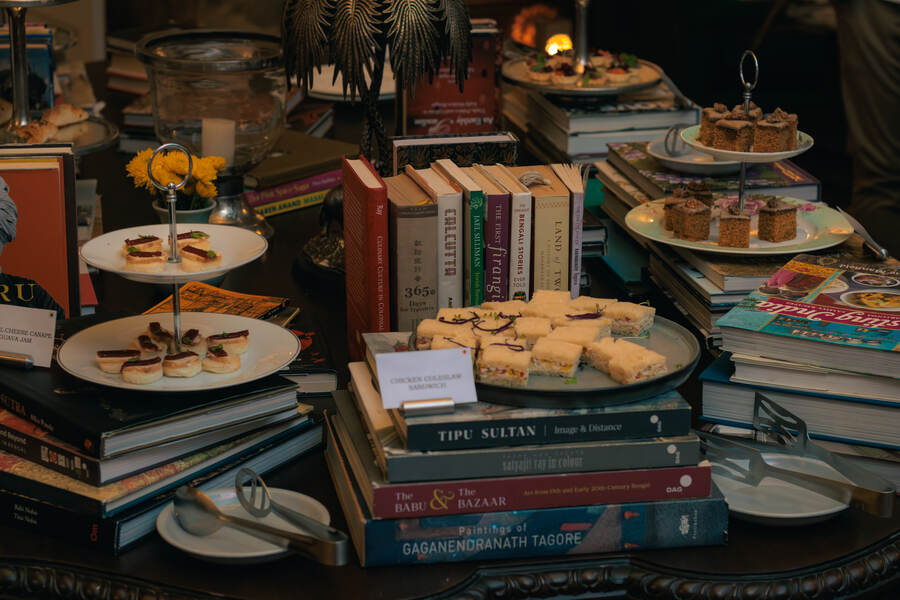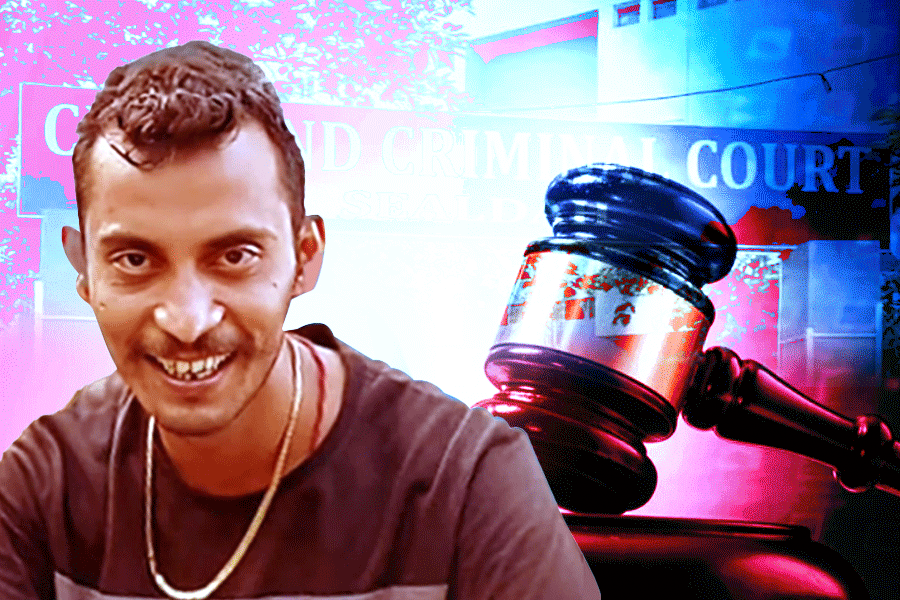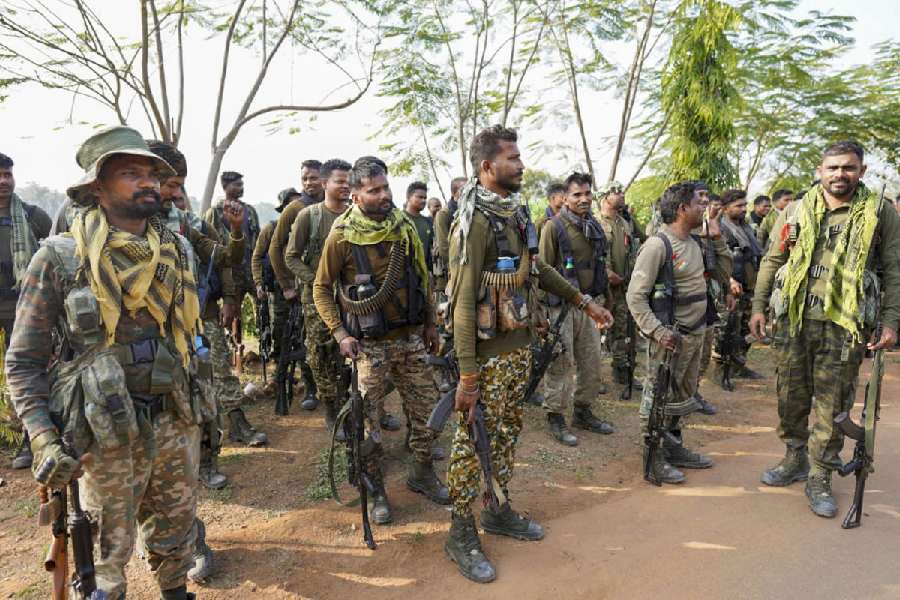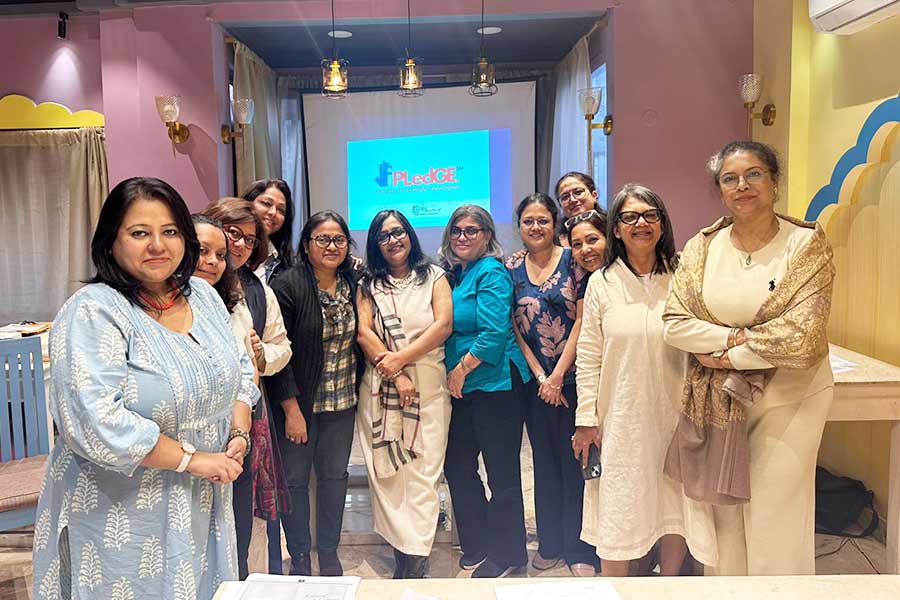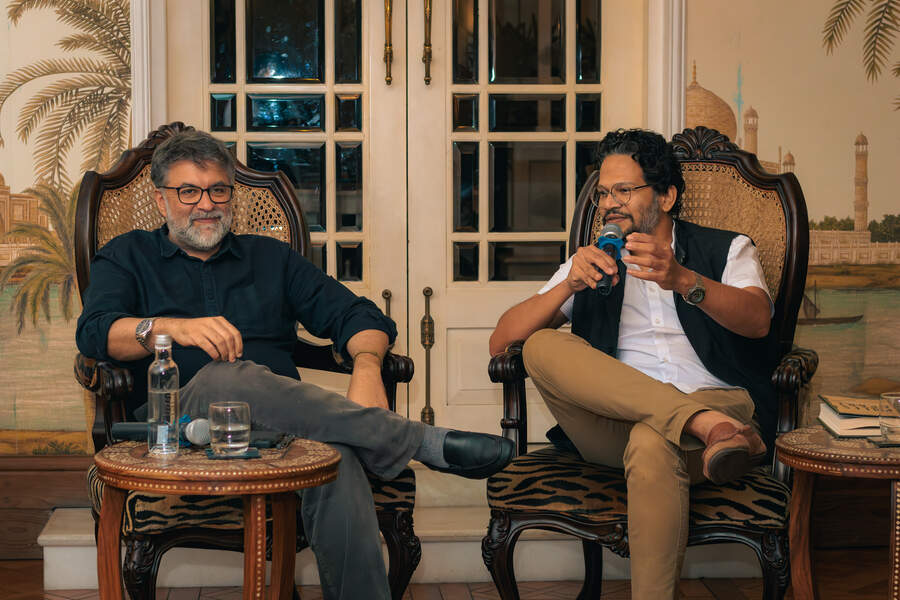
No democracy is safe without a sound military. At the same time, an overpowered military can endanger even the most established democracies. Understanding the complicated but crucial relationship between a democracy and its military was the agenda at ‘Poles Apart’, a discussion organised by the Glenburn Culture Club at the Glenburn Penthouse on September 22, with My Kolkata as digital partner. The evening saw Aditya Sondhi, senior advocate at the Supreme Court and author, exchange ideas with Chandrahas Choudhury, novelist and travel writer
Photos: Krishnungshu Gangopadhyay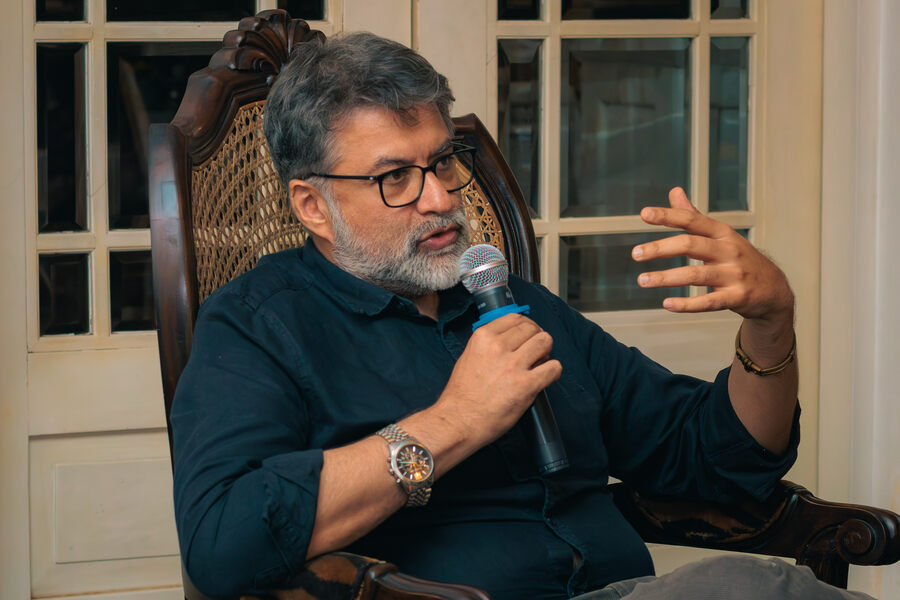
Sondhi, the author of non-fiction titles like ‘Unfinished Symphony’ and ‘The Order of the Crest’, spoke about his latest book, ‘Poles Apart: The Military and Democracy in India and Pakistan’ (India Viking), published in July. A key theme of Sondhi’s arguments was the role of a constitution in demarcating the powers between the wings of the government and the military. “Pakistan had as many as three constitutions in their first 26 years of existence. That’s one too many, if you ask me… In India, we had a firm and early commitment to a single Constitution,” said Sondhi, explaining why martial law and military coups have been common in Pakistan while never taking place in India
![Sondhi and Choudhury, who were introduced by Anjum Katyal, shared a riveting chemistry, taking off from each other’s geopolitical tangents. Proceeding with Sondhi’s points about India and Pakistan, Choudhury steered the dialogue towards the contrasting trajectories of both countries: “ Like the Indian leadership, [Muhammad Ali] Jinnah wanted a secular Pakistan to begin with. How is it that, within 10 years of Independence, India and Pakistan became such different countries?” The response that followed argued that a major reason for the difference was that Pakistan was too concerned about a single leader’s legacy while India had diverse leaders with diverse perspectives](https://assets.telegraphindia.com/telegraph/2024/Sep/1727424053_3.jpg)
Sondhi and Choudhury, who were introduced by Anjum Katyal, shared a riveting chemistry, taking off from each other’s geopolitical tangents. Proceeding with Sondhi’s points about India and Pakistan, Choudhury steered the dialogue towards the contrasting trajectories of both countries: “ Like the Indian leadership, [Muhammad Ali] Jinnah wanted a secular Pakistan to begin with. How is it that, within 10 years of Independence, India and Pakistan became such different countries?” The response that followed argued that a major reason for the difference was that Pakistan was too concerned about a single leader’s legacy while India had diverse leaders with diverse perspectives
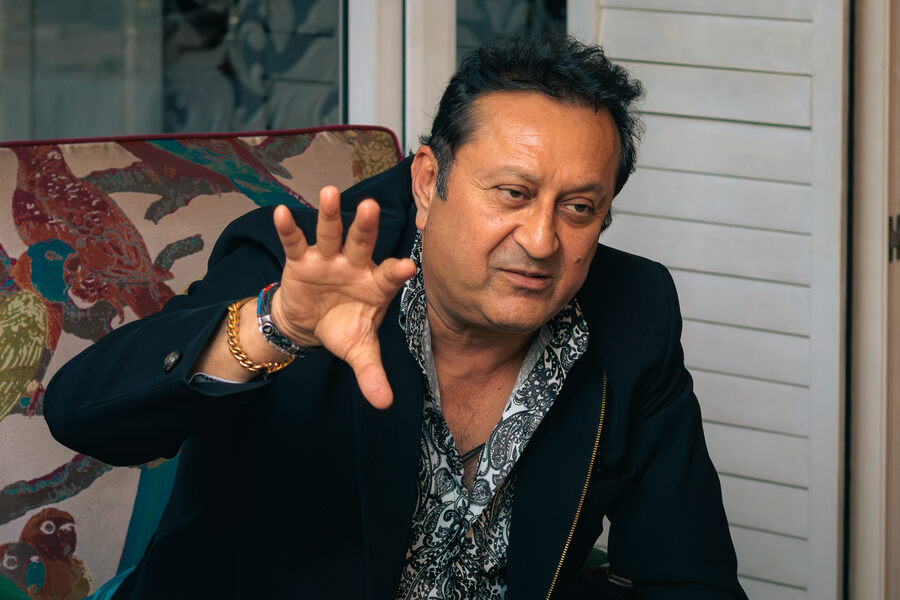
With an animated audience thoroughly involved in the conversation, Sondhi, with timely prompting from Choudhury, touched upon a gamut of regimes and figures — from Sheikh Hasina in Bangladesh to Imran Khan in Pakistan to India’s Sam Manekshaw. In the latter half of the chat, Indira Gandhi’s Emergency, the Armed Forces (Special Powers) Act and the ongoing RG Kar protests also came up. “It was an engrossing discussion, evoking the march of lawful gunmen in the garden of democracy,” observed advocate Anubhav Sinha (pictured) from the audience
